Červenokostelecký zpravodaj – leden 2017
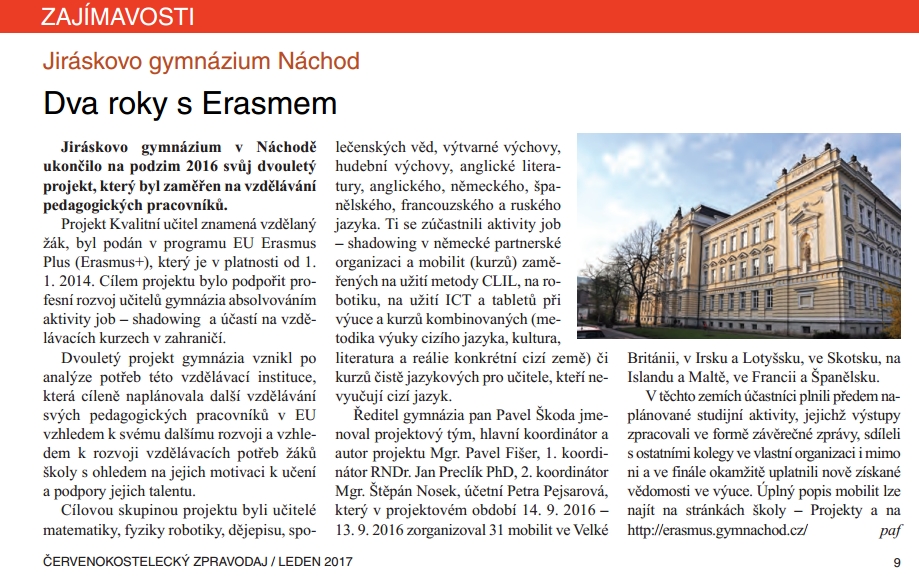

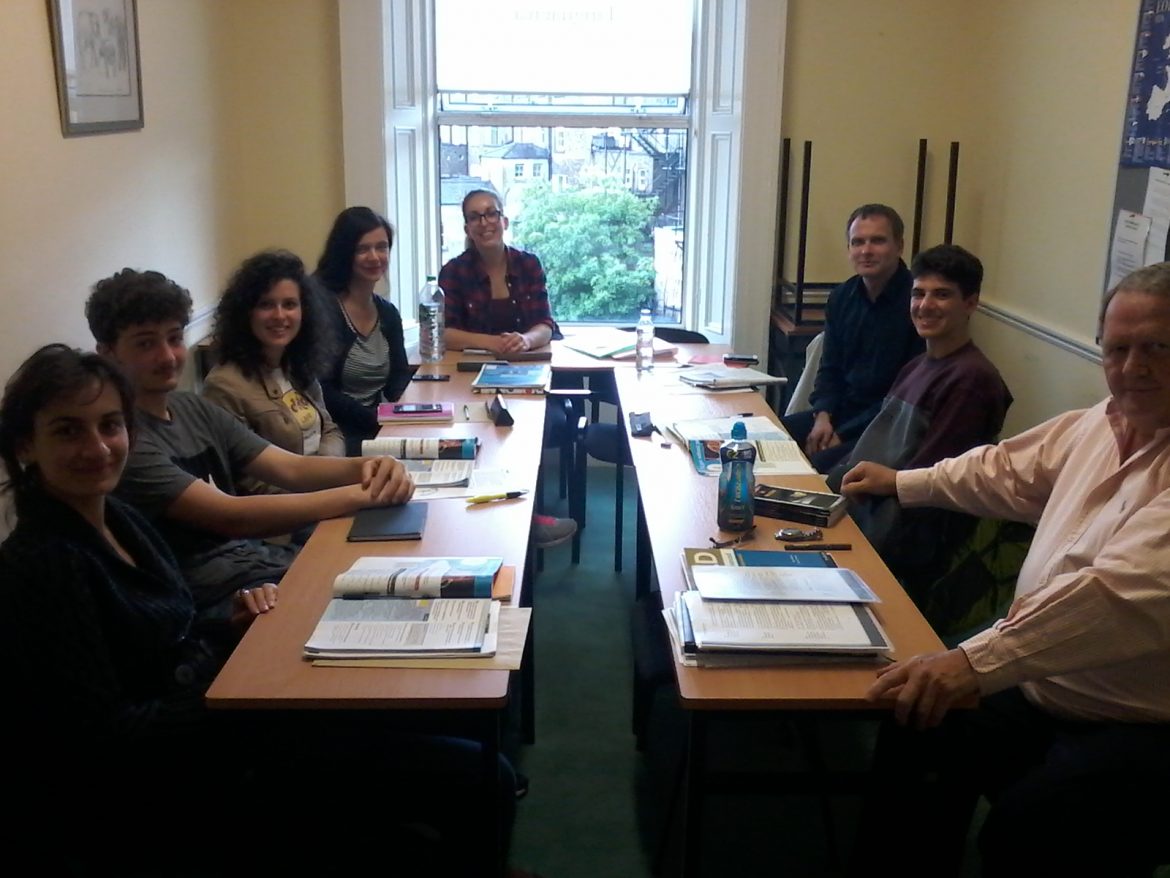
In June 2016, Štěpán Nosek attended a two-year course in Liguaviva Centre, Dublin. It consisted of two parts, a group seminar focusing on language competences at proficiency level and methodology of teaching grammar structures and idiomatics of English. The afternoon lessons, which he found particularly beneficial, comprised an intensive controlled discussion about the cultural context of Ireland, namely the multicultural nature of Irish history, Anglo-Irish tradition, evolution of Irish English, the position of Irish in modern Irish society, Irish economy after „the Celtic Tiger“, contemporary Irish school issues, the Easter Rising Legacy, currently celebrating its anniversary, Irish nationalism, Ireland and immigration etc. To a great deal, the teachers introduced authentic materials, thematic videos from youtube, like the BBC’s series The Story of Ireland, as well as published essays, all of which can be productively used in Štěpán’s classes on Ireland.
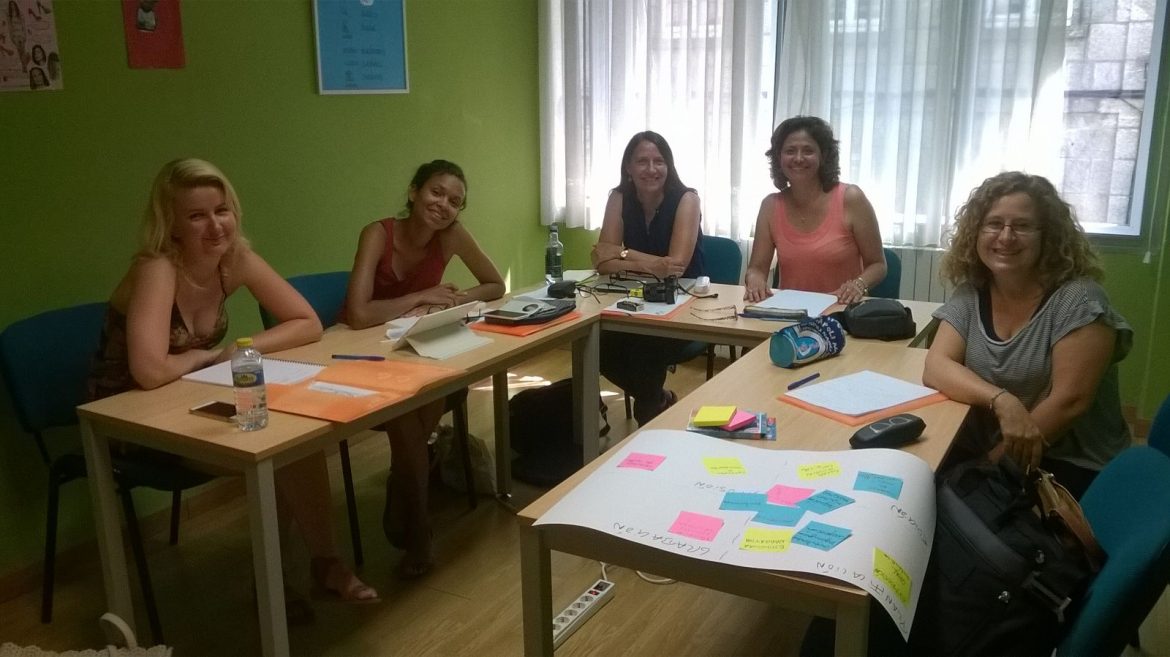
In the second part of July 2016, Lucie Pavlíčková participated in a Video and storytelling course in Santiago de Compostela, Spain, a place especially know for St Jacob’s pilgrimage. In the first week of the course, the participants created a screenplay and shot a short video focusing on national stereotypes around Europe. During the week, they shot individual scenes, adapted and edited them and created a short funny film. In the second week, Lucie learned to use a number of mobile applications, which can be employed in class. The participants created memes, stop-motion, dubbed short clips and produced their own cartoons. Lucie is still in touch with her colleagues from the course through social networks and they share not only interesting tips for teaching, but also films or books.
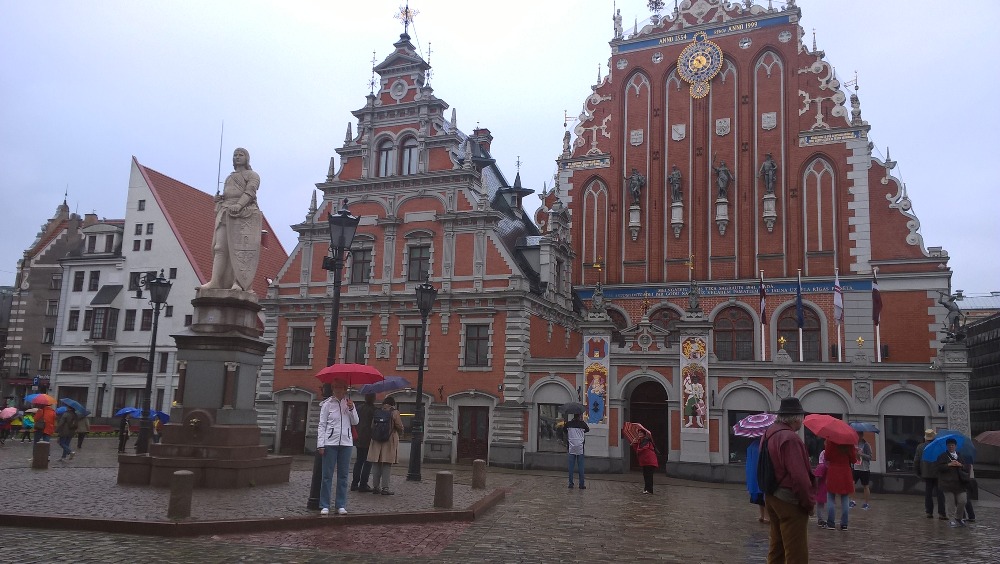
Between June 27 nad July 8, 2016, Věra Ševeleva and Michael Šimon attended an educational and methodological course focusing on teaching Russian in Riga, Latvia. They dealt mainly with speaking tasks based on reading texts. The seminar work included interpretation and comprehension of reading materials. The participants were also involved in listening comprehension by means of on-line news materials related to current social and cultural themes. In the afternoon part of the course, Věra and Michael were familiarized with different types of teaching activities and acquired new information of textbooks and Internet resources. They found the language games, competitions and pictures stimulating speech very inspiring and acknowledged the professional and helpful attitude of all the tutors.
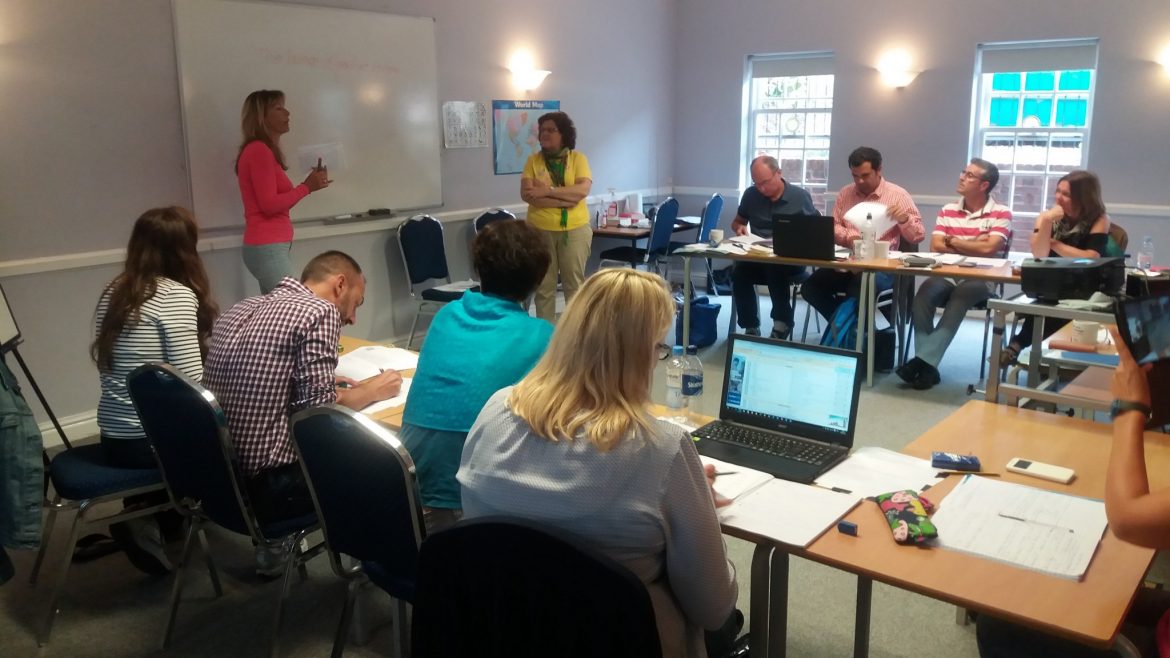
In August 2016, Ivana Matěnová attended a fourteen-day course of CLIL method in Exeter, UK. The course was organized by IPC (International Projects Centre). The teachers of the school are highly specialized and qualified. The lessons focused on CLIL method, its types, basic principles, assessment and grading. The participants got involved in a number of activities, which can be used in the teaching process even in the mother tongue and are well structured according to difficulty. They trained the activities on different contents (mainly maths, geography, biology and history). They also used different websites to create quizzes, tests, crosswords, QR codes etc. To conclude, they were to prepare and present a lesson based on CLIL method followed by analysis. Besides the methodological training, the participants were also informed of the school system in Britain and the eTwinning programme.
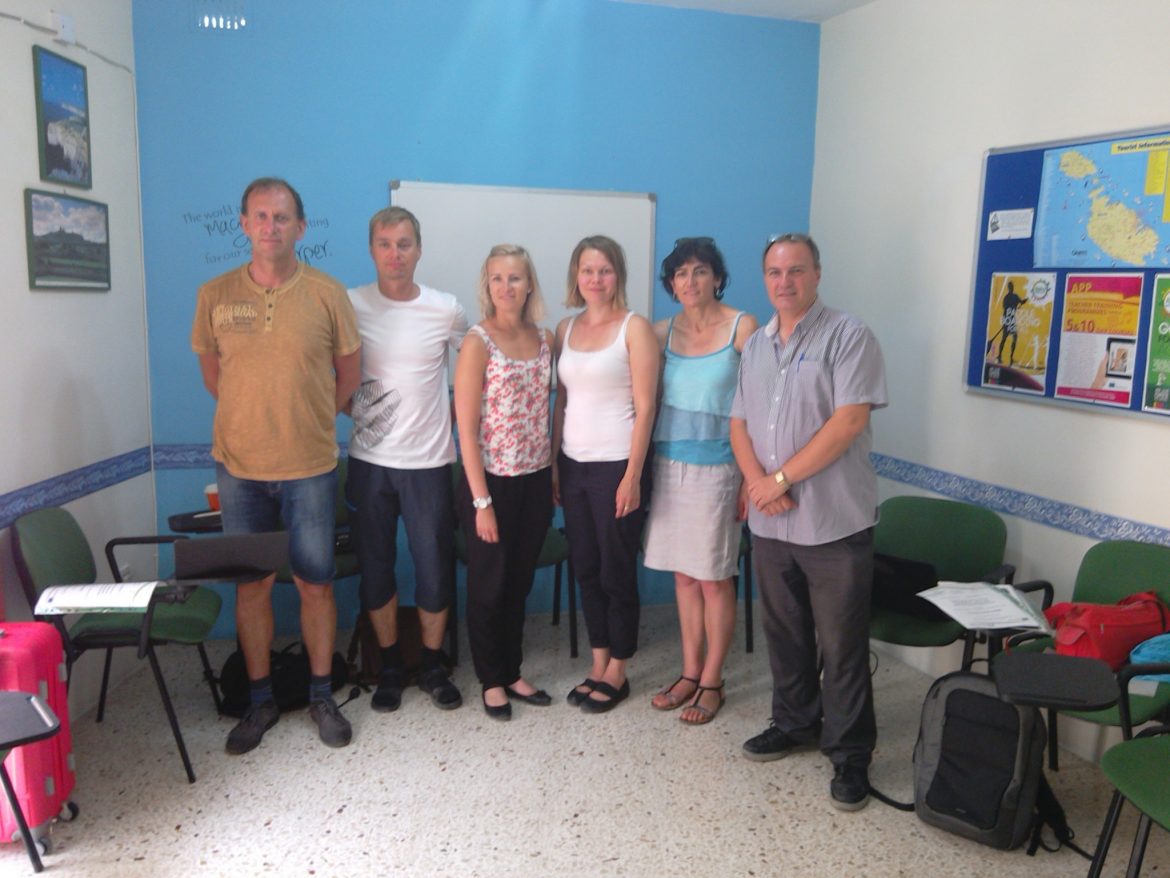
Between June 13 and 24, 2016, Pavel Fišer attended the course Use of Modern Technology in Teaching organized by Alpha School of English in St Paul´s Bay, Malta. The participants launched the ten-day course with lessons focused on Interactive Whiteboards and Presenting. The next section entitled Paper-Based Resource involved creation and presentation of worksheets in Word, whose main aim was to motivate and entertain both the students and the teacher. The also used Prezi application that enabled them to create linear presentations with quality visualisation. To create digital quizzes, they learned to use Kahoot application. Another application, Socrative, allows teachers to test the student knowledge. The participants, moreover, joined in Vlogging activities, which included creating a short video.
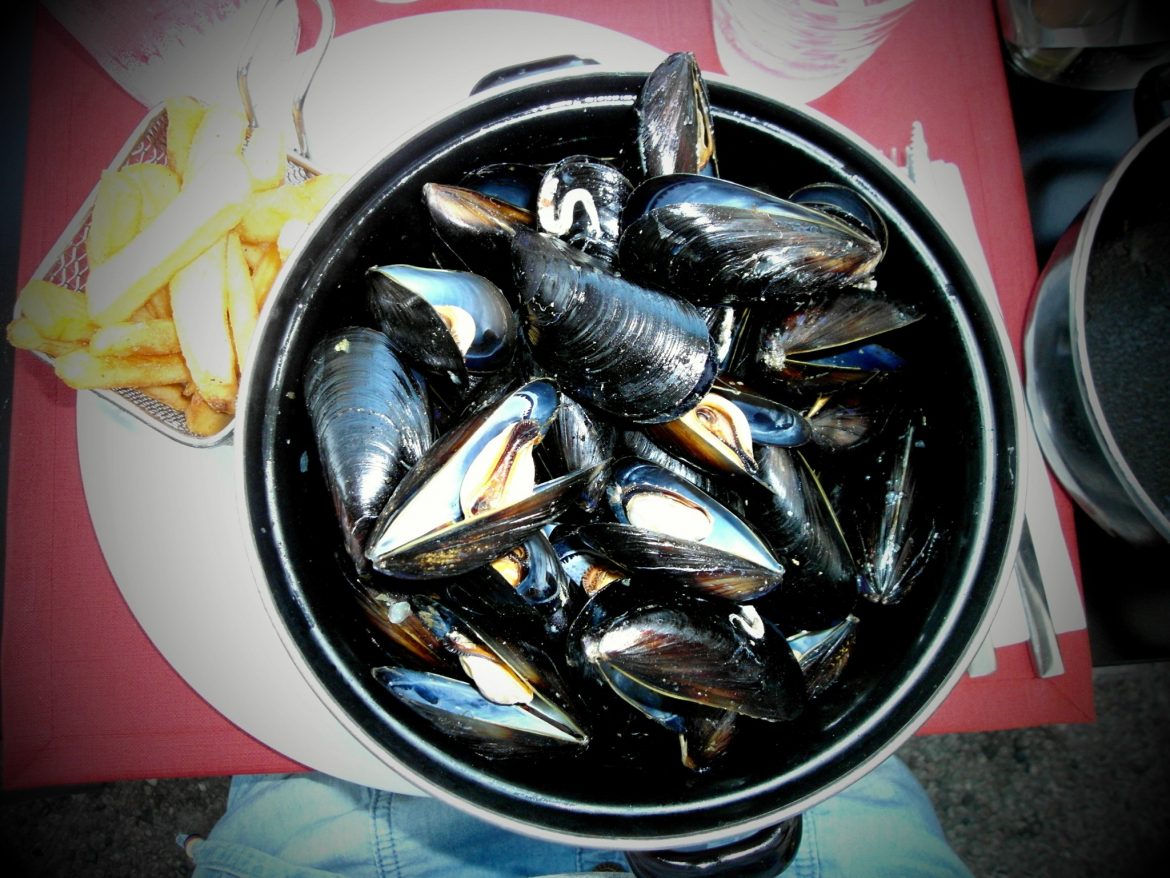
At the beginning of the summer holidays, Kateřina Havrdová attended a two-week course focusing on methodology of French teaching. In the first week, the participants from 22 countries from around the world concentrated on playful and motivating activities in French learning. Simultaneously, they created a team social game, which can be used in class. They also concentrated various challenging aspects of French grammar such as past tenses, indirect speech, pronouns, relative pronouns, adjectives and their position before or after a noun, or imperative. The participants, moreover, studied the use popular songs, but also classical music in learning. In the second week, Kateřina dealt with phonetics and pronunciation correction focusing on the rhythm and melody of spoken French. Moreover, the discussions within the course included the topic of multicultural relations and national stereotypes.
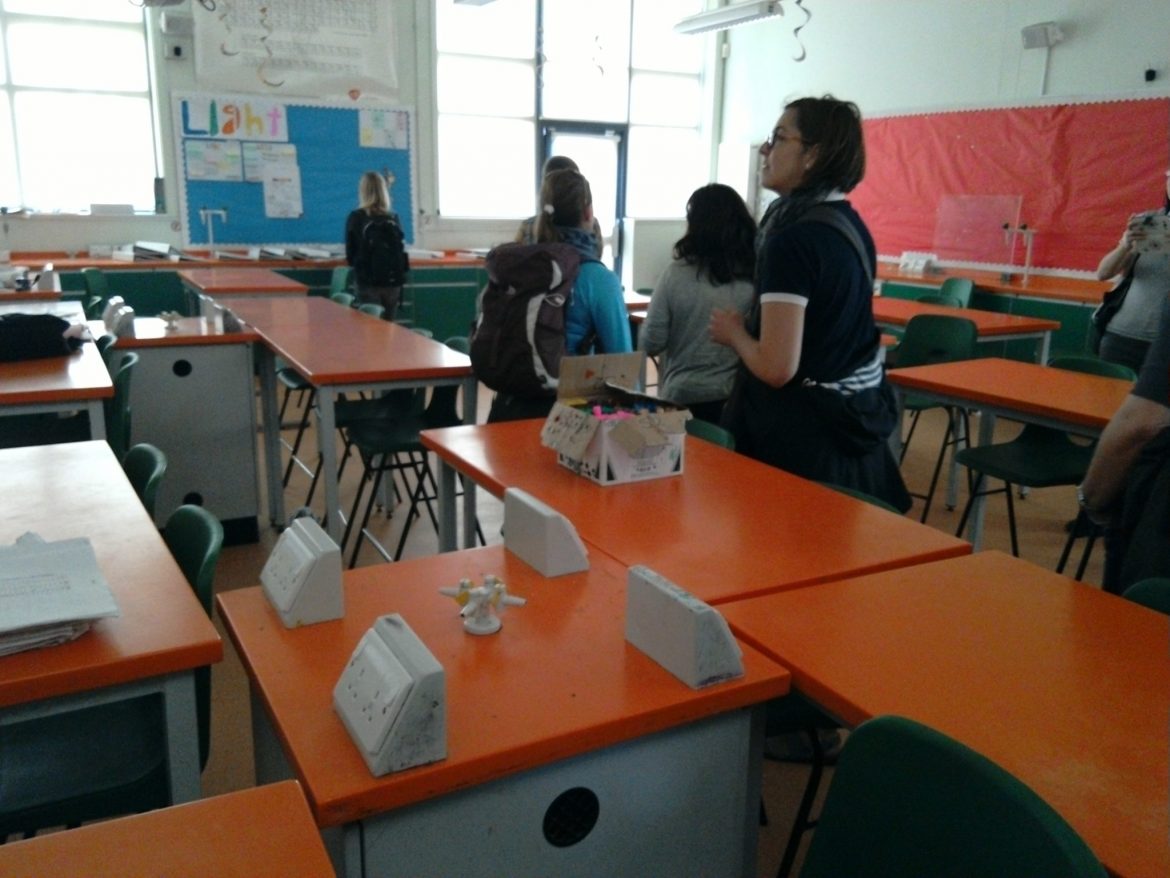
Tak Erasmus+ mi umožnil i tohle. Ještě nedávno jsem žil v domnění, že na Oxfordu nemůže studovat každý, že to není jen tak pro někoho, že už to je prostě NĚCO – studovat na Oxfordu. Moje sebevědomí provizorně našplhalo až do výšek věžiček koleje Christ Church, neb jsem věděl, že já tuhle větu („Studoval jsem na Oxfordu!“) budu smět říkat jako samozřejmou pravdu.
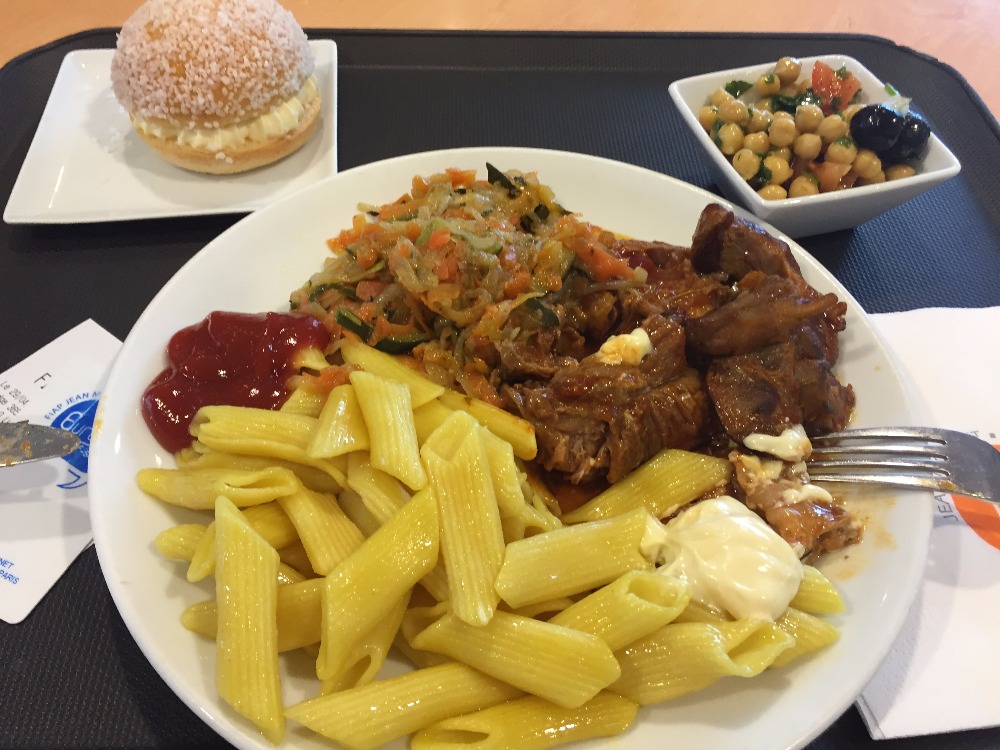
Between April 25 and May 5, 2016, Lukáš Zapadlo participated in a two-week course focusing on French and methodology in the school Paris Langes in the capital of France. The intensive course of French language was primarily aimed at problematic grammar phenomena, their practical use and trends in contemporary vocabulary and spoken language – the so-called verlan. The classes were also devoted to entertaining approaches and techniques of learning French. In the afternoons, Lukáš attended individual courses, in which the current issues of France were discussed and teaching experience shared. Lukáš and his tutor also compared the Czech and French educational systems and methodology approaches. They, further, analysed samples of the French press, such as Lem Monde, Charlie Hebdo – and the most recent social and political themes – La loi Khomri, la securité.
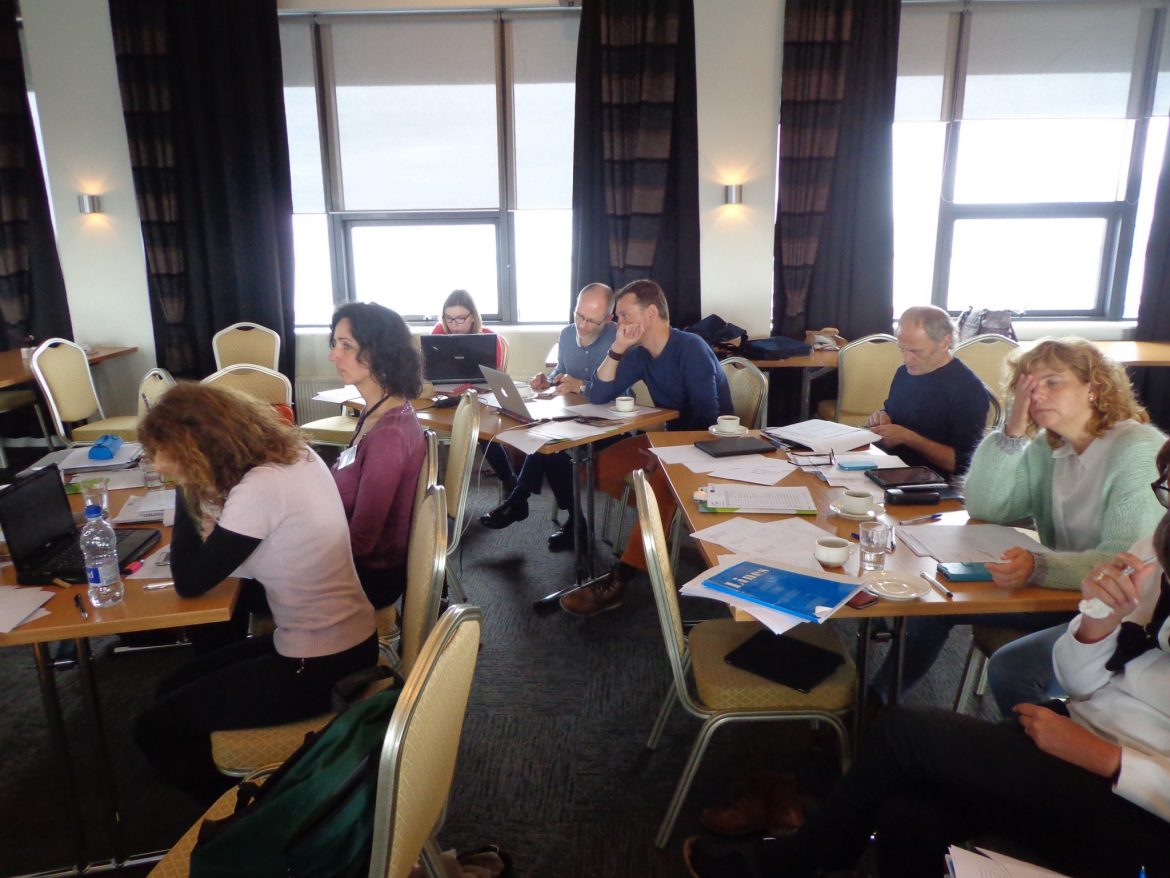
At the beginning of May 2016, Zdena Jirková, together with other 32 participants, attended a five-day course entitled Metalearning + Thinking Skills in Reykjavík, Iceland. The lessons took place between 9 a.m and 5 p. m. and the first half of the course was devoted to theory. Also, in the middle of the week, the participants visited a school headed by one of the tutors, Gudrun Jóhannsdóttir. The second part of the course was more practical. Zdena got particularly intrigued by a theory of thinking named ‘six thinking hats’. According to the theory, the students learned to think in six ways. By imaginary putting on the hat, they concentrated on a certain type of thinking: the white hat – we focus on data and information; the black hat – potential problems, danger, risk and difficulties; green hat – creativity, new ideas; yellow hat – advantages, benefit, is positive; blue hat – an overall perspective, setting goals, defines ways to achieve them, organizes thoughts.
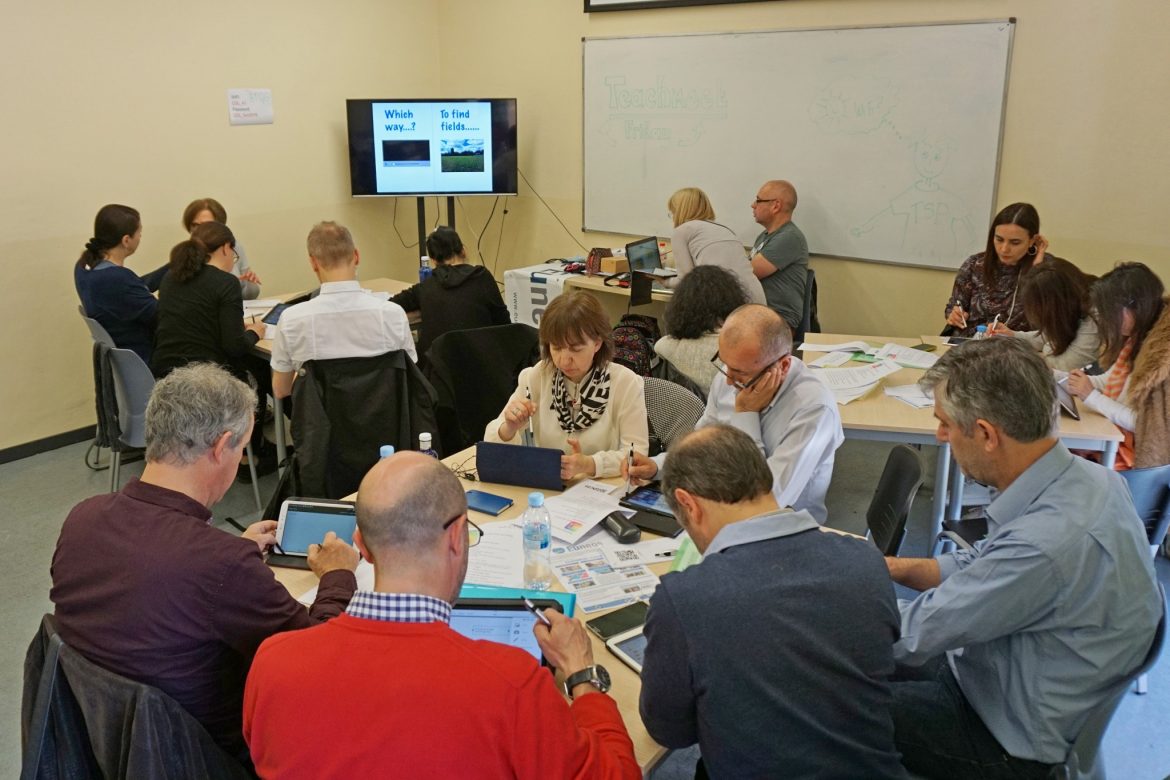
Zdeněk Polák and Jan Preclík attended a course entitled Tap-Swipe-Pinch in Barcelona. The course organized by a Finnish company, Euneos, focused on the use of touchscreen devices (especially tablets and smartphones) in teaching/learning. It was mentored by two tutors (from Slovenia and the UK) and the 28 participants came from 11 countries. The content of the course was focused mainly on presentations of particular applications and their use in class and covered nearly 40 applications ranging from the basic ones from the Google family to special applications aimed at individual subjects. The themes discussed involved “Paperless Classroom” and “Inquiry Based Learning” concluded by a team work on creating, editing and publication of a short video. Further, Zdeněk and Jan learned about the use of games and gaming principles in class (Gamification) and were familiarised with practical examples of tablet use in the teaching process.
Náš projekt byl prezentován na monitorovacím semináři dne 21. 4. 2016 v prostorách Národní technické knihovny v Praze.
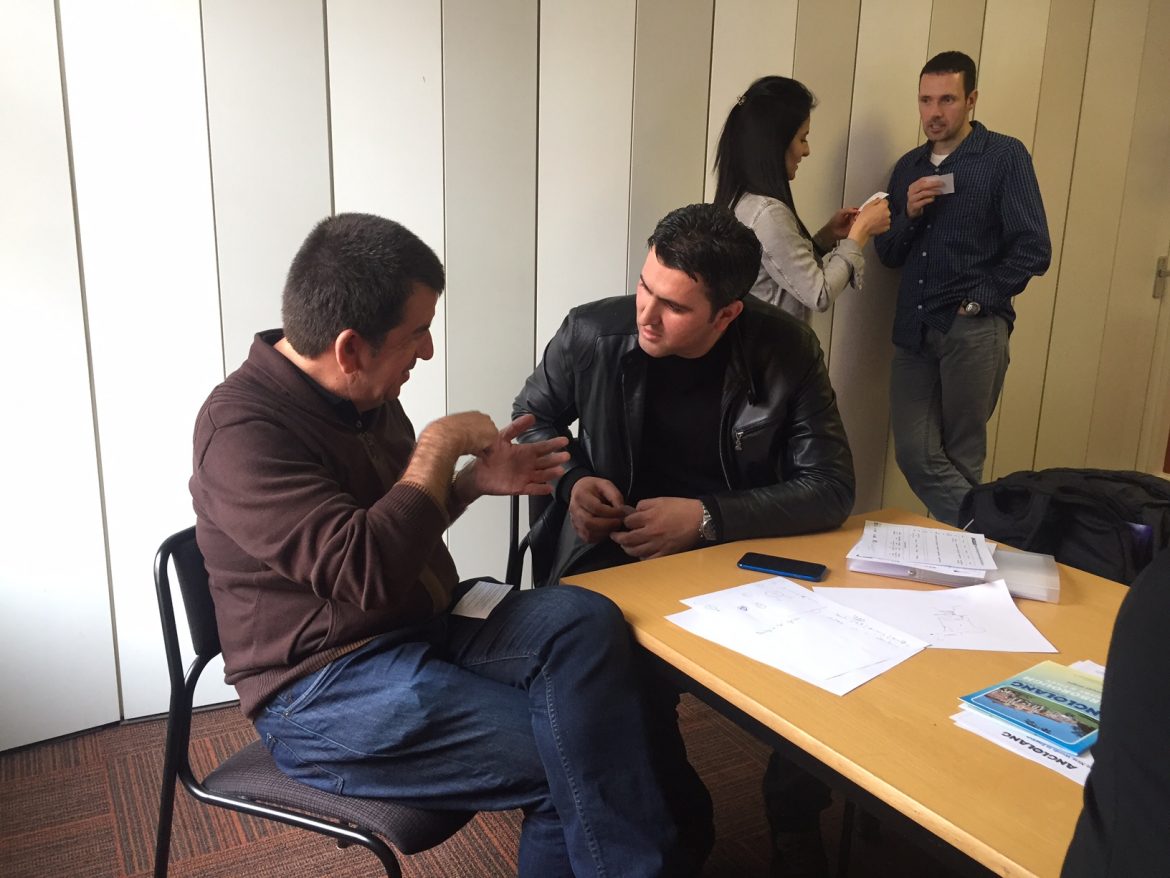
In spring 2016, Štěpán Macura attended a course focusing on CLIL and language skills in Scarborough, UK. He found the CLIL method practical and inspiring and appreciated the practical activities (warm-ups, icebreakers, reading comprehension activities, activities using video or audio recordings), which were used as model CLIL methods. Štěpán tried them out in the practical afternoon classes and acknowledged the fact that they can easily and instantly be applied in any subject. Besides methodology, the course also dealt with development speaking and listening skills. Meeting colleagues from all over Europe, discussing various issues with them, exchanging experience, challenging the national stereotypes – this all was, according to Štěpán, the greatest benefit of his study stay in the UK.
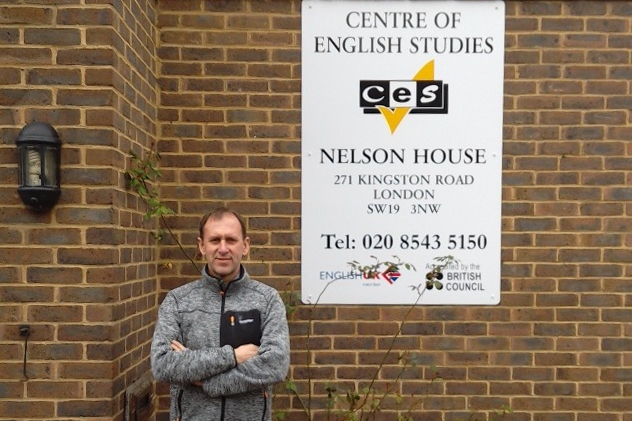
In March 2016, Pavel Fišer attended a course at the Centre of English Studies, one of the six branches in the UK, in Wimbledon, London. The teachers of the school come from the UK, Ireland and NZ and aim at promoting the international and multicultural orientation of the school. Pavel, together with other 7 participants, could try out the role of a student and practiced all the competences such as writing, reading, listening and speaking. The main method employed in all the activities was Say + Explain + Give Example, supported by all the teaching materials and facilities like textbooks, handouts, PC, interactive board, newspaper articles. The afternoon part of the course comprised individual lessons of CLIL method. Pavel found the individual lessons most beneficial as he could, by means of discussion and sharing experience, go over all the stages of CLIL learning, i. e. the stages focusing on the content, communication, cognition, culture (tolerance, respect, cooperation), internationalism and motivation.
Project Erasmus+: Comenius – KA 1
Activity: Staff training abroad
Project title: Kvalitní učitel znamená vzdělaný žák
Project ID: 2014-1-CZ01-KA101-000785
Approved budget : 72629 EUR
EU Travel grant: 8570 EUR
EU Individual support: 35989 EUR
Organisational support: 10500 EUR
Course fees grant: 17570 EUR
EU Special needs support: 0 EUR
Project duration: 14. 9. 2014 – 13. 9. 2016
Brzy na jaře v roce 2014 jsme poslali do programu Erasmus+ naši projektovou žádost zaměřenou na vzdělávání učitelů v zemích EU, která nese název ,,Kvalitní učitel znamená vzdělaný žák“. Doufali jsme, že uspějeme, ale bohužel náš projekt nebyl v prvním kole schválen, i když bodové hodnocení bylo vysoké. Ale bylo zřejmé, že dostaly přednost projekty málo nákladné a s malým počtem mobilit. Proto jsme byli překvapeni a velice potěšeni, když jsme dostali zprávu, že projekt byl dodatečně schválen 14. 10. 2014. (more…)
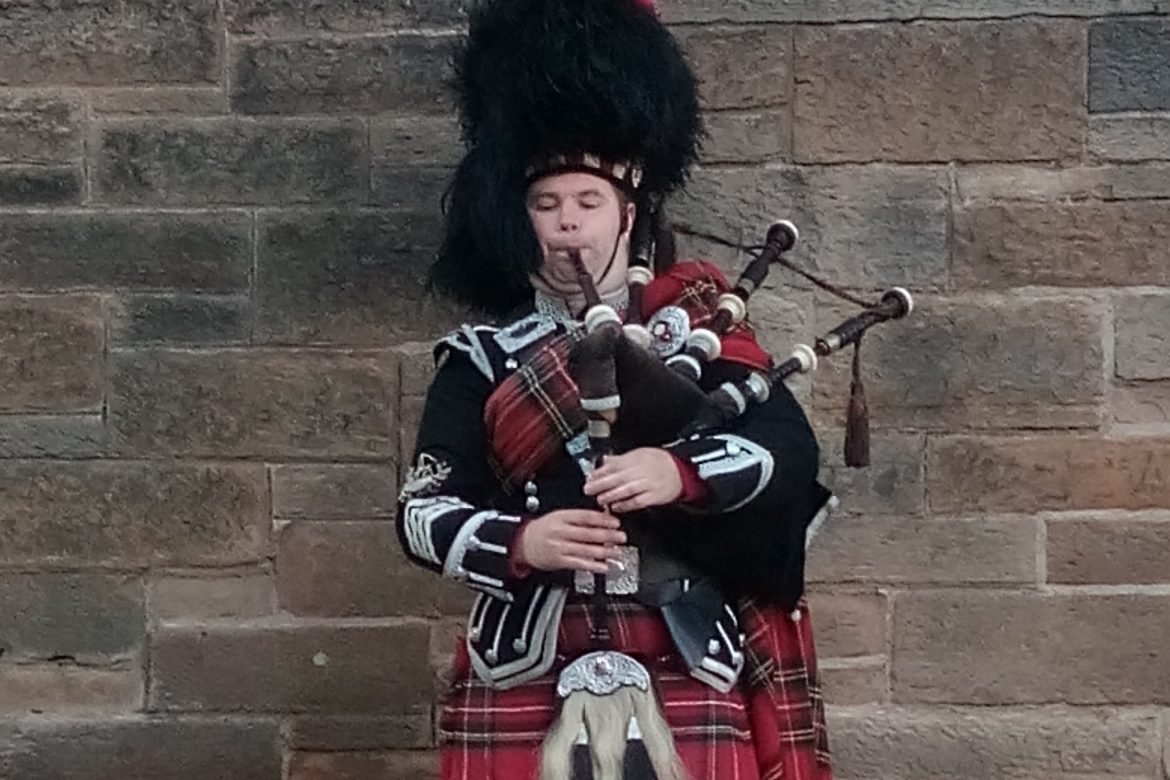
Between October 3 and 17, Zuzana Felklová and Věra Ševeleva participated in Language and Methodology Refresher Course in Edinburgh School of English. The initial classes of various conversational activities were followed by an intensive course of English, in which they dealt with, for instance, idioms, grammar and different language phenomena in contemporary English. All the course was performed on Level C2. The afternoon part of the course focused largely on methodology of teaching English. What Věra and Zuzana highly acknowledged was the social and cultural aspect of the lessons and seminars as they could discuss different approaches to learners with participants from various countries. The lessons usually lasted until 5 p.m. and the evenings were devoted to project preparation and writing homework. During their two-week stay, Věra and Zuzana also visited a number of places of interest around Scotland including Glasgow, Loch Lomond, the castle of Stirling and Aberfoyle, a picturesque village in central Scotland.
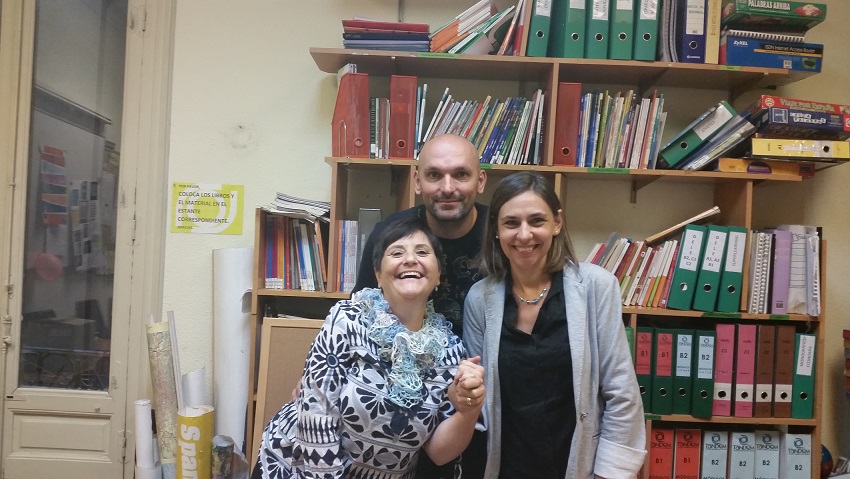
In September 2015, Daniel Pavlík attended an international course for teachers of Spanish in the well-known Tandem Escuela Internacional language school in Madrid. The initial lessons were focused mainly on ‘dynamizing’ textbooks, a method which could freshen up our present use of Aventura textbook through supplementary and especially interactive activities and exercises employed to present grammar structures. This approach leads to avoiding frontal lecturing and integrating the students’ activity in the presentations. The tutors of the course also acquainted the participants with interesting Spanish teaching-oriented websites, which Daniel found very practical and has already used them in class. He also appreciated a series of lectures on history and culture of Madrid and guided tours of its prominent sights. Daniel, of course, did not miss the chance to see a top-league football match in Estadio Vicente Calderón.
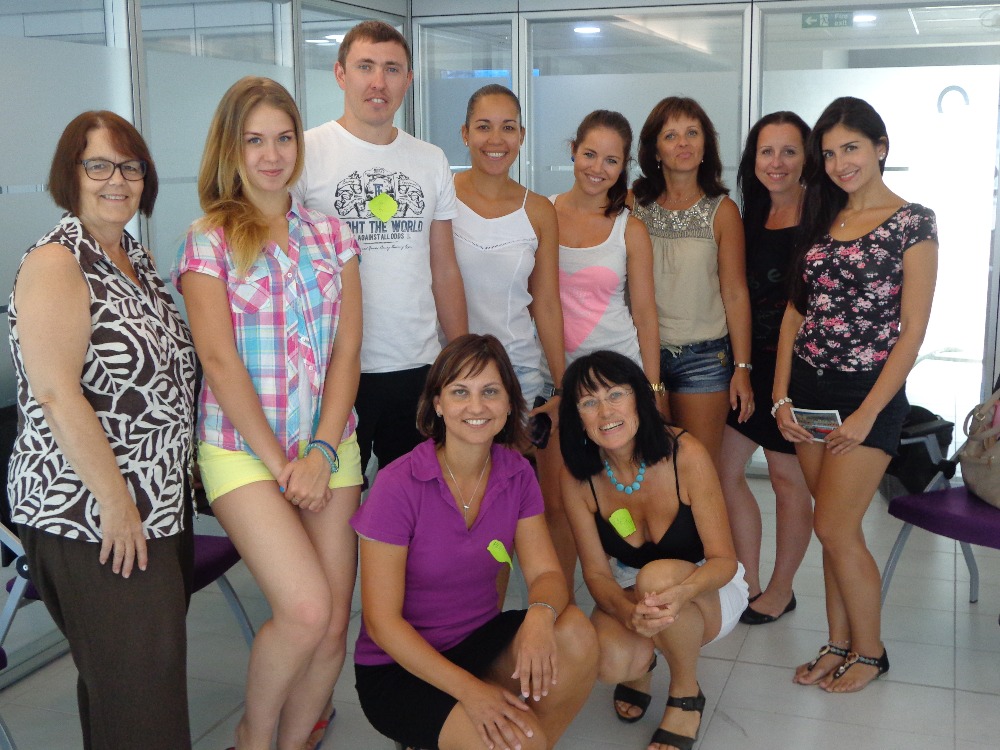
At the beginning of the school year 2015/16, Zdena Jirková and Helena Lubasová attended a two-week course entitled Practical Methodology of English arranged by ACE English School in St Julians, Malta. Thanks to the intensive nature (six lessons a day) of the course, they gained an insight into new trends of language teaching in Malta as well as Great Britain. Their tutors also focused on the four main competences in language learning – listening comprehension, reading comprehension, grammar and speaking. They appreciated the course was rendered in a relaxed atmosphere corresponding to the local slogan ‘no rush!’. The course was concluded with their own lesson, in which Zdena and Helena were to present new methods, they had acquired during the course, followed by a thorough critical analysis of the lesson by their mentor and head of the school. The found the opportunity to teach in a multicultural class a very interesting and beneficial experience.
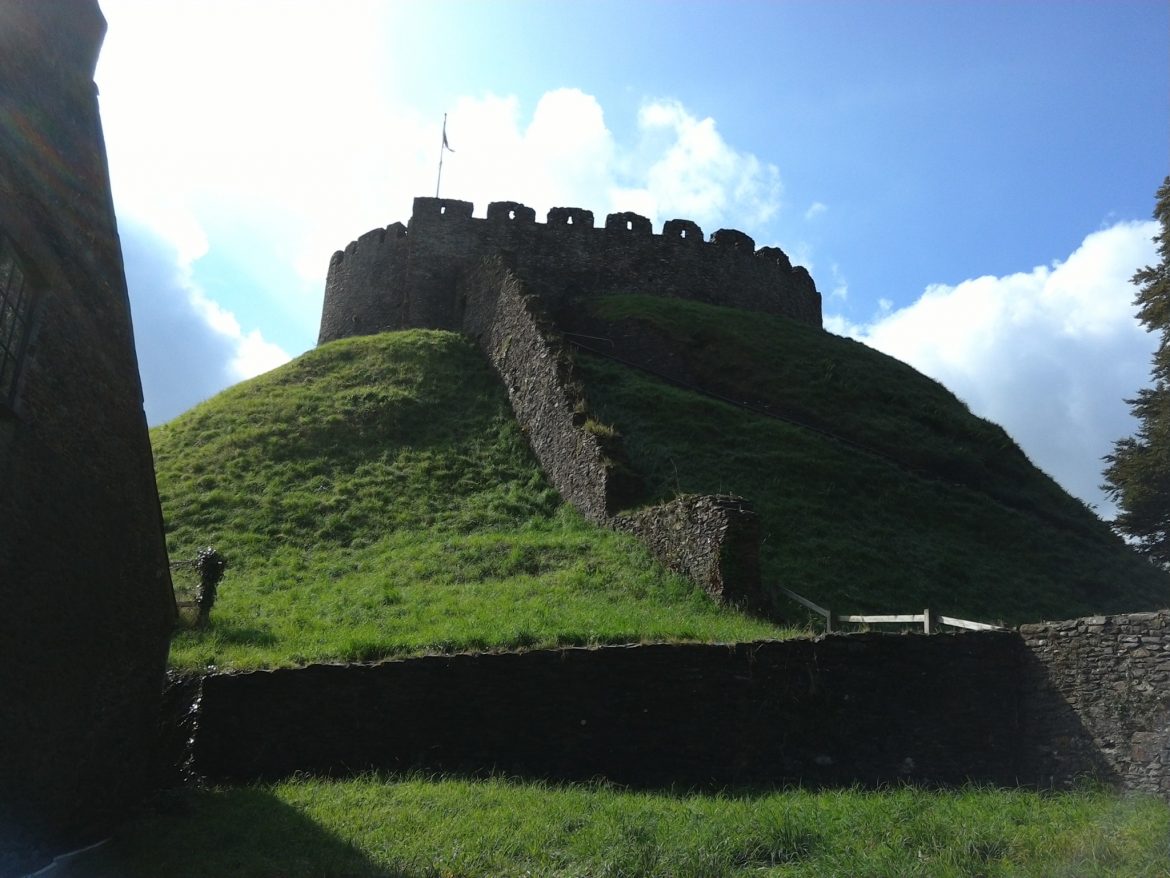
In September 2015, Martina Javůrková and Lenka Hronková participated in a two-week methodology and language course organized by Globe School, English Centre, in Exeter in Devon, UK. The lessons were rendered in groups of maximum 6 students divided according to their level of English. The morning classes were focused on English grammar and further English language development. In the afternoon lessons, the students concentrated on selected specialized fields (business English, study of authentic materials, literature, preparation for different types of exams etc.). They attended CLIL (Content and Language Integrated Studies) focusing on how to teach non-language subjects in English. The methodological course involved gradual development and practice of reading, writing and listening to specialist texts.